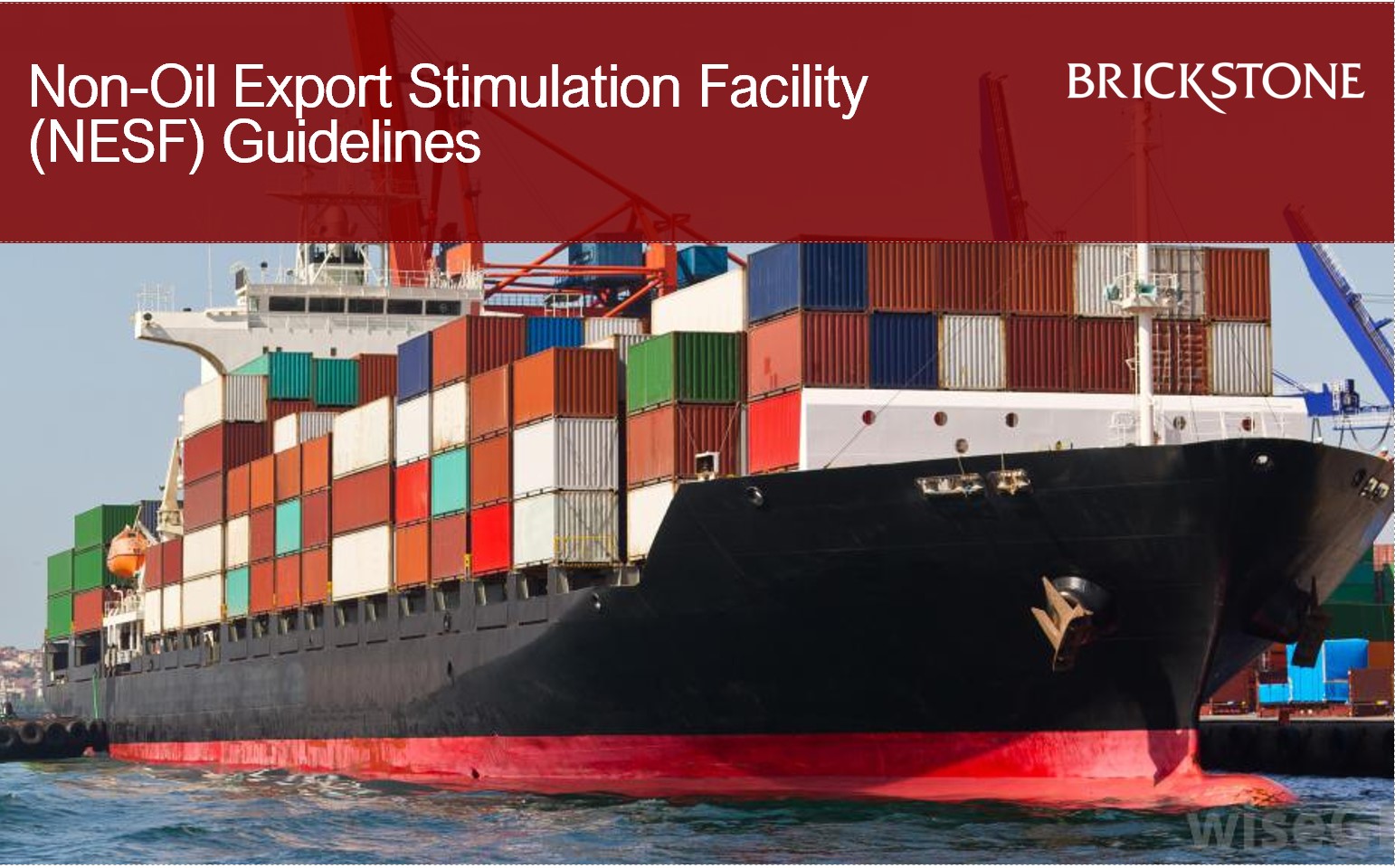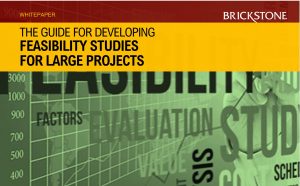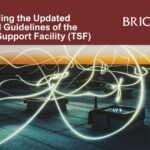Non-Oil Export Stimulation Facility (NESF) Guidelines
Non-Oil Export Stimulation Facility (NESF) Guidelines
The Non-Oil Export Stimulation Facility (NESF) was introduced by the Central Bank of Nigeria (CBN) to diversify the revenue base of the economy and to expedite the growth and development of the non-oil export sector. The Facility will help redress the declining export financing and reposition the sector to increase its contribution to economic development.
The objectives of the Non-Oil Export Stimulation Facility (NESF) are to:
- Improve access of exporters to concessionary finance to expand and diversify the non-oil export baskets
- Attract new investments and encourage re-investments in value-added non-oil exports production and non-traditional exports
- Shore up non-oil export sector productivity and create more jobs
- Support non-oil export-oriented companies to upscale and expand their export operations as well as capabilities
- Broaden the scope of export financing instruments
Eligibility Criteria
To be eligible for the Non-Oil Export Stimulation Facility (NESF), the borrower has to be a non-oil export-oriented enterprise that is duly incorporated in Nigeria under the Companies and Allied Matter Act (CAMA), has verifiable export off-take contracts and has satisfactory credit reports from at least two licensed indigenous Credit Bureau in line with the provisions of CBN Circular BSD/DIR/GEN/ClR/O4/014 dated April 30, 2010.
Eligible Transactions
Eligible transactions that shall qualify for funding under the Non-Oil Export Stimulation Facility (NESF) shall include:
- Export of goods processed or manufactured in Nigeria;
- Export of commodities and services, which are allowed under the laws of Nigeria;
- Imports of plant & machinery, spare parts and packaging materials, required for export-oriented production that cannot be sourced locally;
- Resuscitation, expansion, modernization and technology upgrade of non-oil export industries;
- Export value chain support services such as transportation, warehousing, and quality assurance infrastructure;
- Working capital/stocking facility; and
- Structured trade finance arrangements
The Financial Institutes eligible to participate under the Non-Oil Export Stimulation Facility (NESF) are Deposit Money Banks (DMBS) and Development Finance Institutions (DFIs).
The features of the Non-Oil Export Stimulation Facility (NESF) are:
- Term loans under the Non-Oil Export Stimulation Facility (NESF) shall not exceed 70% of the verifiable total cost of the project subject to a maximum of N5,000,000,000.00
- The Non-Oil Export Stimulation Facility (NESF) shall have a tenor of up to 10 years and shall not exceed the 31st December 2027.
- Working capital/stocking facility shall be for one year with the option of roll-over once subject to the approval of the CBN.
- Repayments of principal and interest shall be quarterly and in accordance with the agreed repayment schedule
- The moratorium shall be for one (1) year. In the case of construction, an option of rollover for a period of up to one (1) year may be allowed, subject to approval by the CBN.
- The Non-Oil Export Stimulation Facility (NESF) shall be granted at an all-inclusive interest rate of 9% per annum.
- Interest charges during the implementation/construction phase of the project shall be dependent on the status and transactional structure of the projects. They shall be categorized into Capitalization of interest (interest payable during the implementation and construction period shall be added to the total facility, subject to the 70% limit on the total cost of the project) and Pre-funding of interest (interest payable during implementation and construction shall be from a pre-funded Debt Service Account).
Application Procedures
Submission of Requests: A PFI shall submit an application to CBN on behalf of its customer in the prescribed format. In the case of loan syndication, the lead bank shall submit an application on behalf of other banks. All correspondence with respect to the application shall be with the lead bank.
Documentation Requirement
Each request for a facility is to be accompanied by the following documents:
- A written request from the project promoter to a PFI seeking funding under the Non-Oil Export Stimulation Facility (NESF).
- Completed application form
- Certified true copies of documents on business incorporation.
- Applicant’s preceding three (3) years tax clearance certificate.
- Audited statement of accounts for the last three (3) years (where applicable) or the most recent management accounts for companies less than three (3) years in Operations
- Feasibility study/Business plan of the project
- Relevant permits/ licenses/approvals (where applicable).
- Verifiable export orders/ contracts or other export agreement and arrangements/commitments.
- Environmental Impact Assessment (EIA) report (where applicable).
- Draft letter of offer by PFI, loan repayment schedule and credit risk report of the customer.
- Any other document(s) that may be required by CBN.
Collateral Requirement: PFIs shall submit Irrevocable Standing Payment Order (ISPO) in respect of all projects approved under the scheme.
Participation Agreement: A participation agreement shall be signed between CBN and each PFI.
Monitoring and Evaluation (M & E): Monitoring and Evaluation of projects funded under the Facility shall include on-site and off-site verification and routine monitoring of projects by CBN and PFIs.
The roles and responsibilities of stakeholders under the Non-Oil Export Stimulation Facility (NESF) scheme shall be as follows:
The Central Bank of Nigeria (CBN) shall:
- Provide a Loanable fund for the implementation of the scheme.
- Issue the Non-Oil Export Stimulation Facility (NESF) guidelines.
- Act as the managing agent.
- Determine lending limits and applicable rates.
- Provide regulatory and supervisory oversight.
- Sanction PFIs for infractions.
- Monitor and evaluate the projects.
- Conduct impact assessment from time to time.
- Review the Non-Oil Export Stimulation Facility (NESF) guidelines as may be deemed necessary from time to time.
- Invoke ISPO in case of default.
The PFIs shall:
- Disburse funds to eligible export companies at the approved rates.
- Ensure timely disbursement of funds to approved projects.
- Ensure due diligence is followed in the administration of credit facilities.
- Bear the credit risk on loans granted to beneficiaries under the Non-Oil Export Stimulation Facility (NESF).
- Ensure timely remittance of principal and interest payments due to the CBN.
- Monitor and ensure proper utilization of funds.
- Comply with the operating guidelines of the Non-Oil Export Stimulation Facility (NESF).
- Comply with documentation requirements in section 6.2 above; and
- Render periodic returns in prescribed formats or as may be specified by CBN from time to time.
The beneficiary shall:
- Utilize the funds for the purpose for which it was granted.
- Adhere strictly to the terms and conditions of the loan and comply with all relevant laws and regulations.
- Make the project site(s) and records accessible to CBN and PFIs for inspection.
- Provide periodic reports on the status of the project in a prescribed format as well as periodic financial statements in line with extant company registration regulations.
- Comply with the operating guidelines of the Non-Oil Export Stimulation Facility (NESF); and
- Repay maturing loan obligations in line with the approved repayment schedule.
Discontinuation of the Facility
All non-disbursed funds repaid amounts or discontinued facility shall be reported and funds returned to CBN within 5 working days giving details of the facility and reasons for discontinuation.
Infractions and Sanctions
Penalty for defaults:
- In the event of default in loan repayment of principal and/ or interest by the borrower, the PFI shall have the right to charge its prevailing interest rate on the amount in default.
- Failure of PFI to disburse funds to the borrower within the period agreed in the loan agreement shall attract a penal charge of the maximum lending rate of the PFI for the period that funds were not disbursed;
- Failure to remit principal and interest to the CBN shall attract a penal charge of the maximum lending rate of the PFI for the period that funds were not remitted; and
- Non-rendition of returns or the rendition of false returns shall attract the penalty stipulated by section 60 of the Banks and Other Financial Institutions Act (BOFIA).
Amendments
These Guidelines shall be subject to review from time to time as may be deemed necessary by the CBN. The Amendment would not have retroactive effect
Check out our Guide to Developing “Bankable” Feasibility Reports which would be useful in achieving this:
Why not contact us to make your Project Happen
Our advisors and consultants would be able to schedule an online meeting with you to discuss your project with the overall objective of seeking ways to achieve the “bankability” and protection of the long term asset value of your project. Request a Meeting Now






